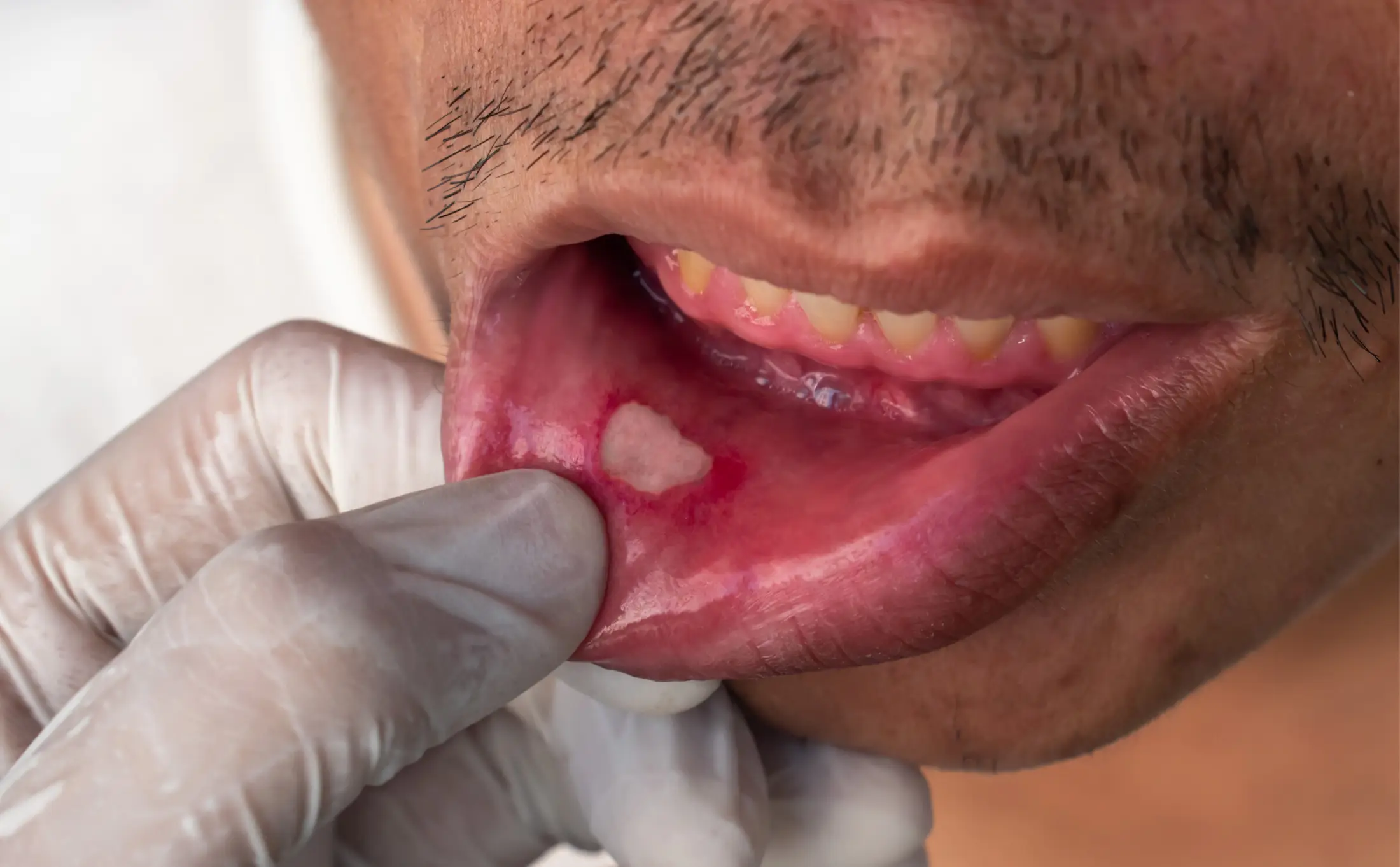
A dentist has issued a warning to those suffering from a health issue that often worsens in the winter months.
When it comes to signs of illness, most of us know to look out for any unusual changes within our bodies, such as lumps or ongoing pain.
But there are certain signs that can be easily dismissed as something totally different.

Advert
In case you didn't know, a number of health conditions can also be linked to oral health.
And now, an oral surgeon has explained one sign to look out for which could indicate something more serious.
Dr Andrej Bozic is an oral surgeon at Dentum. He explained that while mouth ulcers can be common in winter, it's worth keeping an eye on them to see how long they last.
Mouth ulcers can be caused by biting the inside of your cheeks, having poorly fitted dentures or braces, from cuts or burns, allergies, damage to your gums, and stress.
However, they can also be caused by other factors such as hormonal changes, genetics, vitamin deficiencies, and certain medications.
While it can be normal to suffer with mouth ulcers every now and then, they should really heal up within a couple of weeks.

"Most mouth ulcers heal within 10 to 14 days," Dr Bozic told the Mirror.
“If a sore lingers beyond that, it could indicate something more serious, such as oral cancer, an autoimmune disease, or a chronic infection.
"Dehydration and a higher risk of infections during colder months can aggravate mouth ulcers. But any sore that persists shouldn't be dismissed as seasonal - it's crucial to have it checked."
It's concerning if the ulcer does not heal after three weeks, or if there's red or white patches inside the mouth and any unexplained pain.
Difficulty chewing, swallowing or speaking, or any lumps or swelling in the neck or jaw should also be investigated by a healthcare professional.
The NHS also explains that you should visit the doctor if the ulcer:
- lasts longer than three weeks
- is different to other mouth ulcers you've had before, for example if it's bigger or in a different location, such as the throat
- bleeds or becomes more painful and red

"A non-healing ulcer is one of the early warning signs of oral cancer," Dr Bozic added.
"Patients often dismiss these as minor injuries, but an ulcer that lasts more than three weeks should be taken seriously. It’s crucial to look for other symptoms like red or white patches or lumps in the mouth."
